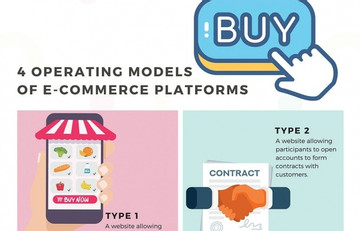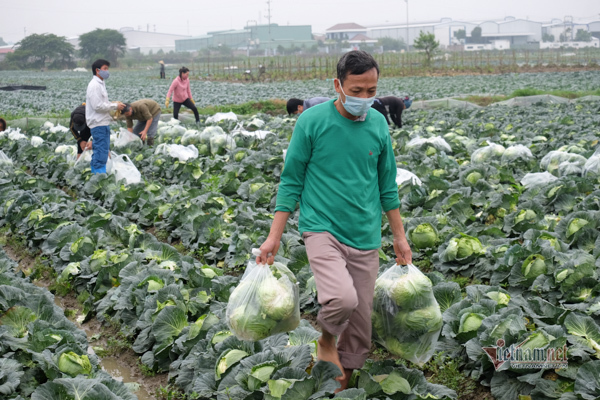- © Copyright of Vietnamnet Global.
- Tel: 024 3772 7988 Fax: (024) 37722734
- Email: [email protected]
e-commerce platforms
Update news e-commerce platforms
Ministry demands cross-border platforms like Temu adhere to Vietnamese law
The Ministry of Industry and Trade has instructed the E-commerce and Digital Economy Agency to enforce legal compliance for Temu, Shein, and other cross-border platforms in Vietnam.
Foreign e-commerce platforms expand market in Vietnam
In the era of globalisation, e-commerce is rapidly becoming a popular shopping channel in Vietnam. However, the strong presence of international e-commerce giants, particularly from China, poses significant challenges for Vietnamese enterprises.
Temu registers after allegations of unregulated operations in Vietnam
Following concerns over unfair competition, Temu has registered with the Ministry of Industry and Trade after reports of unauthorized operations in Vietnam.
Revenue on top five e-commerce platforms jumps 79%
The e-commerce market of Vietnam was robust in the first quarter of this year with total revenue of the top five platforms.
Tax agency launches probes into e-commerce platforms
Sixteen platforms disclosed insufficient information about their vendors in Q1, whereas 162 said they had no information about their number of...
How much tax Facebook, Google, Microsoft paid to Viet Nam?
Google has paid VND2.115 trillion (nearly US$87.4 billion) in tax to Vietnam from 2018 to August 2022, representing the biggest tax contributor among cross-border and e-commerce platforms operating in the country.
Fixes aim to clear up e-commerce tax
With the fast development of digital commerce in the past few years, an adjusted decree from the Ministry of Finance and a new e-commerce tax portal are expected to facilitate better tax management for e-commerce platforms.
New strategy promotes agricultural products on e-commerce platforms
The recently-approved National Postal Development Strategy to 2025 with a vision to 2030 targets 100 percent of agricultural households using e-commerce platforms to move their products.
Warehouses use robots to pack products as e-commerce booms
Products ordered on e-commerce platforms are being delivered to consumers from warehouses with robotic arms and a high degree of automation.
Foreign e-commerce platforms must set up an office or appoint representative in Vietnam
Foreign traders and foreign organizations having e-commerce activities in Vietnam must establish representative offices or appoint representatives according to Vietnam’s regulations.
5.3 million farming households have accounts on Postmart, VoSo
More than 5.3 million farming households have been helped to create accounts on the two e-commerce platforms of Postmart and Vo So. The figure is expected to reach 10 million by the end of the year.
Millions of farmers learn how to sell their products via e-commerce
According to a plan of the Ministry of Information and Communications, all agricultural production households operating on e-commerce will be trained in digital and business skills on e-commerce platforms.
E-commerce continues to expand in Vietnam, Southeast Asia
After a successful year with many contributions to the macro-economy and supply of goods during the pandemic, e-commerce platforms continued to be recognized in terms of brand recognition in 2021 in Vietnam and Southeast Asia.
Millions of farmers learn how to do business on e-commerce platforms
Under a plan of the Ministry of Information and Communications (MIC), 100 percent of farming households on e-commerce platforms in 2022 will be trained in digital skills and doing business on e-marketplaces.
Tech firms get involved in smart agriculture projects
Technology utilization and market development are the keys to development of Vietnam’s agriculture.
More Vietnamese agro products to be available on e-commerce platforms
Following successful sales of lychees, efforts have been made to sell other Vietnamese farm produce on e-commerce platforms, the Nong nghiep Viet Nam (Vietnam Agriculture) newspaper has reported.
Fake and low-quality goods: the biggest problem for e-commerce platforms
Counterfeit and poor-quality goods are the biggest obstacle that customers face on online shopping platforms.
VN hopes to tax overseas sellers on e-commerce platforms
The Vietnamese tax watchdog hopes to tax sellers based in foreign countries but operating e-commerce businesses in Vietnam.
Farmers in Hai Duong turn to e-commerce sites to sell produce
No longer having to discard vegetables, many farmers in Hai Duong province, Vietnam’s Covid-19 hotspot, can now sell their farm produce on e-commerce platforms.
E-commerce platforms help “rescue” agricultural products
E-commerce platforms are effective tools that can help farmers reduce losses when there is an oversupply of produce and sales are slow.



















